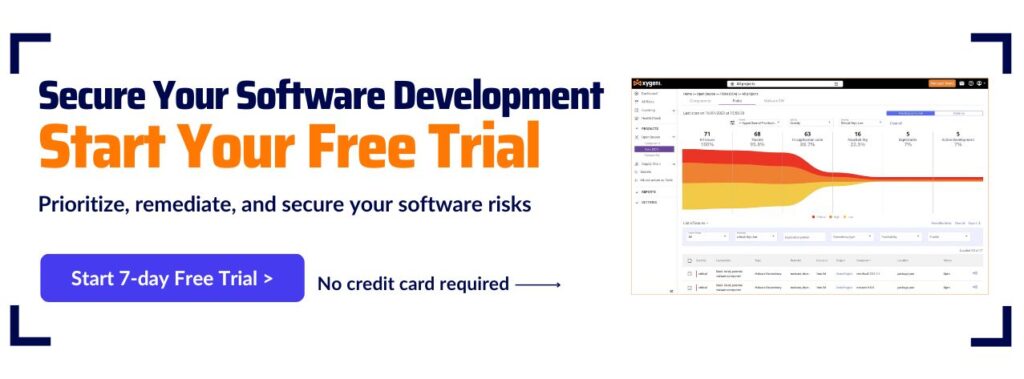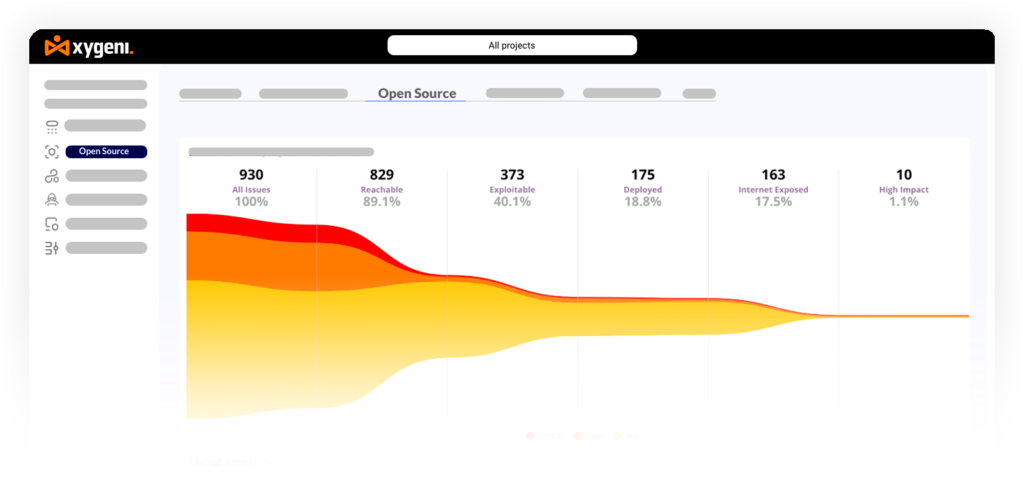Choosing the right ASPM tools is becoming critical for modern DevSecOps teams. As application security risks grow, ASPM vendors offer centralized platforms that help teams manage vulnerabilities, misconfigurations, and compliance issues across the entire software development lifecycle. In fact, Application Security Posture Management (ASPM) is now seen as essential to achieving full visibility and control across your CI/CD pipelines.
According to Gartner’s Innovation Insight report, ASPM enables organizations to take a risk-based approach to application security. . Moreover, these solutions consolidate findings from multiple security tools (like SAST, SCA, and secrets scanners), prioritize the most critical issues, and automate remediation workflows. That means teams can spend less time chasing alerts—and more time focusing on what really matters.
In this guide, we’ll walk through the top ASPM vendors and explore the most popular ASPM tools to consider in 2026. Specifically, you’ll learn what each platform offers, how they support your DevSecOps workflows, and how to choose the right solution for your team.
Best Best Application Security Tools
1. Xygeni Application Security Tools
Overview:
Xygeni offers one of the most complete ASPM tools available, enabling organizations to enhance the security posture of their applications across the entire SDLC. Moreover, this platform comes packed with features for real-time visibility, smart risk prioritization, and automated remediation workflows. As a result, teams can ensure end-to-end protection from development to deployment without slowing down their delivery process.
ASPM Tool Key Features:
Automated Asset Discovery and Inventory Management:
Xygeni makes it easy to automate the discovery of all software assets and inventories. Consequently, it brings increased transparency and control over development and deployment processes. In particular, this includes detailed tracking of code repositories, dependencies, pipelines, and more.
Better Prioritization:
Specifically, it prioritizes the vulnerability based on factors like severity, SCA reachability, exploitability, and business impact, and it greatly reduces alert noise—thereby allowing teams to focus on the critical threats.
Least Privilege Review:
In addition, Xygeni scans for user accounts, their permissions, and related access control, thus mitigating the risks of inactive users and over privileged users.
Dynamic Prioritization Funnels:
Furthermore, enterprises could set certain stages and criteria against which vulnerabilities shall be prioritized, thereby adjusting the focus on security based on their needs.
Third-Party Security Report Integrations:
Moreover, many third-party security tool (SAST, SCA, Secrets, IaC) reports can be combined into Xygeni to give a consolidated view of security threats against its technology stack.
Advanced Dependency Mapping and Graphing:
The advanced tools provide detailed graphs of how all assets are connected within the projects; hence, it makes it clear how different elements of a CI/CD environment interact.
💲 Pricing*:
- Starts at $33/month for the COMPLETE ALL-IN-ONE PLATFORM, no extra fees for essential security features.
- Includes: SCA, SAST, CI/CD Security, Secrets Detection, IaC Security, and Container Scanning everything in one plan!
- Unlimited repositories, unlimited contributors, no per-seat pricing, no limits, no surprises!
Reviews:
2. Snyk ASPM Vendor

Overview:
Snyk, meanwhile, offers one of the most widely adopted ASPM tools for end-to-end application risk reduction. It delivers automated asset discovery, built-in security controls, and smart risk prioritization. It’s designed for DevSecOps teams that want to secure business-critical assets early in the development process without slowing things down.
Key Features:
- Automated Asset Discovery:Snyk continuously identifies application assets and classifies them based on business context. As a result, security teams get a reliable view of what’s running and where.
- Security and Compliance:Snyk helps define and enforce security and compliance policies across all applications. In addition, this ensures consistent coverage from development to production.
- Risk-Based Prioritization: By combining business context with technical insights, Snyk highlights the most important risks. This allows developers to focus on what matters most.
Cons:
- Fragmented UX: Separate interfaces for each product can make orchestration more complex. For example, switching between SCA and IaC dashboards may slow down workflows.
- High False Positives: Limited reachability and exploitability filters lead to excess noise in alerts. Consequently, teams may spend time on non-critical issues.
- Lacks Unified Context: Without a consolidated asset view, posture management becomes harder across the pipeline. Moreover, it may increase the risk of missed vulnerabilities.
💲 Pricing*:
- Limited by test volume: The Team plan includes 200 tests per month. After that, extra usage may lead to additional charges.
- Modular pricing model: Each product (SCA, Container, IaC, etc.) is sold separately, which can drive up the total cost.
- Variable pricing per product: Features must be bundled under a single billing plan, and pricing isn’t always consistent.
- No transparent tiers: Full platform access requires a custom quote. Pricing can scale quickly with usage and team size.
Reviews:
3. Cycode ASPM Vendor

Overview:
Cycode, similarly, offers a powerful ASPM tool that combines native application security scanning with broad integration support through its ConnectorX framework. It helps teams secure everything from code to cloud, offering flexible coverage for organizations with a mix of in-house and third-party tools.
Key Features:
- Code to Cloud Security: Cycode provides visibility, prioritization, and remediation across every layer of the SDLC. As a result, teams can manage risk from development through deployment.
- Native Scanners: It includes built-in support for secrets scanning, SCA, SAST, and CI/CD posture checks. In addition, these tools work together to offer comprehensive coverage without relying entirely on integrations.
- Risk Intelligence Graph (RIG): This feature prioritizes vulnerabilities based on business impact, risk score, and proximity to production. Therefore, it helps security teams act on what matters most.
- ConnectorX: Cycode makes it easy to connect best-of-breed third-party security tools. Moreover, this allows for a more unified and enriched security view.
Cons:
- Custom pricing required: Core ASPM features like RIG and full automation are only available through enterprise quotes. Therefore, transparency is limited during evaluation.
- Higher total cost: Many critical ASPM features—such as posture scoring or multi-tool integration—are considered premium add-ons. As a result, the base cost increases quickly with feature expansion.
- Scaling challenges: Cycode uses annual licensing and per-seat pricing. In addition, scaling across large teams becomes more complex when compliance or CSPM modules are included.
💲 Pricing*:
- Custom pricing required: ASPM capabilities tied to RIG (Risk Intelligence Graph) and full automation are available only via enterprise quotes.
- Higher total cost: Key ASPM features—like centralized risk posture, connector integrations, and CI/CD posture scoring—are considered advanced add-ons, inflating base costs.
- Scaling challenges: Annual licensing and per-seat pricing complicate scaling across large engineering teams, especially when additional modules like CSPM or compliance are added.
Reviews:
4. Legit Security

Overview:
Legit Security, likewise, positions itself among leading ASPM vendors by providing ASPM capabilities focused on securing the entire software development lifecycle from code to pipelines to infrastructure. It’s built for organizations that want full visibility and control over how their software is built and deployed.
Key Features:
- Automated Pipeline Security: Legit continuously monitors CI/CD pipelines to detect misconfigurations and insecure setups. As a result, teams can reduce the risk of supply chain attacks at the pipeline level.
- Real-Time Risk Analysis: It analyzes code and infrastructure security risks in real time. This enables faster detection and response throughout the SDLC.
- Compliance Automation: Legit helps automate compliance with security standards and best practices. In addition, it simplifies audits and reduces manual tracking efforts.
Cons:
- No Incremental Scanning: Legit does not support scanning only recent code changes. Consequently, teams may face longer scan times or duplicate results.
- Missing Reachability Analysis: Vulnerabilities aren’t filtered based on runtime exploitability. As a result, teams may struggle to prioritize issues effectively.
- Vendor Lock-In Risk: Optimal performance often depends on integrating with other Veracode products. For example, full posture management may require using Veracode SCA and SAST tools.
💲 Pricing*:
- High median cost: Legit’s ASPM functionality is bundled with Veracode packages, which often exceed $18,000/year for mid-sized contracts. Moreover, there is no standalone ASPM option.
- No all-in-one plan: Users must license multiple Veracode modules—like SCA, SAST, and pipeline security—to gain complete posture visibility. This raises the entry barrier for focused use cases.
- Lack of pricing transparency: No self-service plans or public pricing tiers are available. Therefore, all deployments require custom negotiation, making comparisons difficult during evaluation.
Reviews:
5.Apiiro ASPM Vendor

Overview:
Apiiro, moreover, is one of the ASPM vendors focused on combining code risk visibility with developer behavior analytics. This ASPM vendor helps organizations identify high-risk code changes, understand team activity, and prioritize issues based on context across the entire SDLC.
Key Features:
- Code Risk Platform: Apiiro analyzes code changes in real time to surface security, compliance, and operational risks. As a result, teams can catch high-impact issues before they reach production.
- Behavioral Analytics: The platform uses machine learning to understand how developers interact with code and infrastructure. This helps flag risky behaviors and identify unusual patterns early.
- Workflow Integration: Apiiro integrates with GitHub, GitLab, and other developer tools to deliver actionable insights directly in the workflow. In addition, it supports seamless adoption by development teams.
Cons:
- Steep Learning Curve: The UI and analytics may overwhelm teams without prior experience using behavior-based AppSec platforms. Therefore, onboarding may require additional training.
- Slow Onboarding: Setting up meaningful policies and integrations takes time. Consequently, it may take longer to get value compared to simpler tools.
- Limited SCM and CI/CD Coverage: Some tools and environments are not fully supported. For example, deeper CI/CD layers or niche SCM platforms may be missed.
💲 Pricing*:
- Modular licensing model: Core ASPM functions like risk profiling, code posture views, and behavior analytics may require separate activation. As a result, full access can be more expensive.
- Not mid-market friendly: The platform is designed primarily for large-scale posture management. Therefore, it may not suit lean DevSecOps teams or early-stage startups.
6. Konducto ASPM Tool

Overview:
Kondukto, furthermore, ranks among the top ASPM vendors by centralizing vulnerability management and orchestrating results from existing AppSec tools. It’s built for teams that already use multiple scanners and want a unified view without switching platforms.
Key Features:
- Centralized Vulnerability Management: Kondukto aggregates results from tools like SAST, SCA, DAST, and container security scanners. As a result, security teams can manage findings in one place.
- Security as Code: It supports policy automation and test orchestration inside CI/CD pipelines. This reduces the manual overhead required for continuous delivery.
- Flexible Integrations: The platform connects easily with most major security tools. In addition, it normalizes results for easier triage and reporting.
- Developer Enablement: Kondukto generates issue tickets enriched with remediation tips and training content. This helps speed up resolution without bottlenecks.
Cons:
- No Native Scanners: Kondukto relies entirely on external tools for scanning. Consequently, it cannot function as a standalone ASPM solution.
- Alert Overload Risk: The platform lacks advanced prioritization filters like EPSS scores or reachability analysis. As a result, teams may struggle with noise.
- Complex Integrations: Onboarding multiple tools requires effort. For example, mapping custom scanners and results takes additional setup time.
💲 Pricing*:
- Custom pricing required: Full ASPM functionality—including dashboards, policy management, and cross-tool insights—is only available in enterprise contracts. Therefore, smaller teams may find access limited.
- Higher total cost: Since Kondukto doesn’t include its own scanners, users must license third-party tools separately. This increases the overall cost of ownership.
Reviews:
7. ArmorCode

Overview:
ArmorCode, in particular, is one of the more comprehensive ASPM vendors, offering unified risk visibility and workflow automation. Designed for scale, it combines application security data from multiple sources and uses AI-driven scoring to prioritize what matters most.
Key Features:
- Unified Governance and Guardrails: ArmorCode brings together code, infrastructure, and pipeline risks into one centralized platform. As a result, security and compliance teams get a complete view of application posture.
- AI-Powered Risk Management: It leverages machine learning to assess vulnerability severity and business impact. This helps teams focus on truly critical issues.
- Workflow Automation: The platform automates many manual DevSecOps processes, including ticket creation and SLA tracking. In addition, this helps reduce time-to-remediation.
- Extended Tool Integrations: ArmorCode integrates with dozens of scanners and DevOps platforms. Therefore, it works well as a central hub for your AppSec stack.
Cons:
- Enterprise Focused: ArmorCode is best suited for larger teams. For example, smaller organizations may not need its full feature set.
- No Transparent Pricing: There are no public tiers or trial plans. Consequently, all access must be arranged through custom enterprise quotes.
- Higher Cost Structure: The platform includes CSPM and workflow modules as premium add-ons. As a result, the total cost increases with feature usage and team size.
💲 Pricing*:
- Custom enterprise plans: ArmorCode’s ASPM capabilities are bundled in tailored contracts. This means pricing varies significantly depending on features and integrations.
- Per-seat and per-module pricing: Users must license additional modules like CSPM separately. As a result, total cost can rise quickly across large teams.
- Limited pricing transparency: ArmorCode does not offer self-serve plans or open pricing. Therefore, comparing it to other ASPM vendors can be difficult during evaluation.
Reviews:
What should you ask an ASPM Vendor before choosing an ASPM tool?
Before selecting among the ASPM vendors available in the market, take a pause and ask whether their platform offers full CI/CD visibility, dynamic risk prioritization, and seamless integration with the tools you already have. Not all ASPM tools are created equal. Top solutions should help you manage security proactively, not just react to issues. A good question to keep in mind is: will this ASPM tool help my developers fix problems faster, or will it just add more alerts?
Why Xygeni Should Be Your Go-To ASPM Vendor
Choosing the right ASPM vendor is essential for maintaining a strong and scalable application security program. On the whole, many ASPM tools only address part of the challenge. However, Xygeni delivers a complete platform built specifically for modern DevSecOps workflows.
In fact, Xygeni combines automated asset discovery, risk-based prioritization, pipeline visibility, and third-party tool integrations into one unified solution. As a result, security and engineering teams can gain full control over their application posture—from code to cloud.
To summarize, here’s why Xygeni stands out among today’s top ASPM vendors:
- Firstly, transparent pricing with no per-seat or usage limits
- Secondly, fast and developer-friendly onboarding
- Thirdly, complete visibility into code, CI/CD pipelines, and runtime assets
- Lastly, seamless integrations that accelerate your existing workflows
Moreover, Xygeni is trusted by companies like Fintonic and Metricool, which rely on it to scale security without compromising delivery speed.
In conclusion, if you’re looking for one of the most complete ASPM tools available, Xygeni is a proven choice.
Start scanning now, no credit card required.



